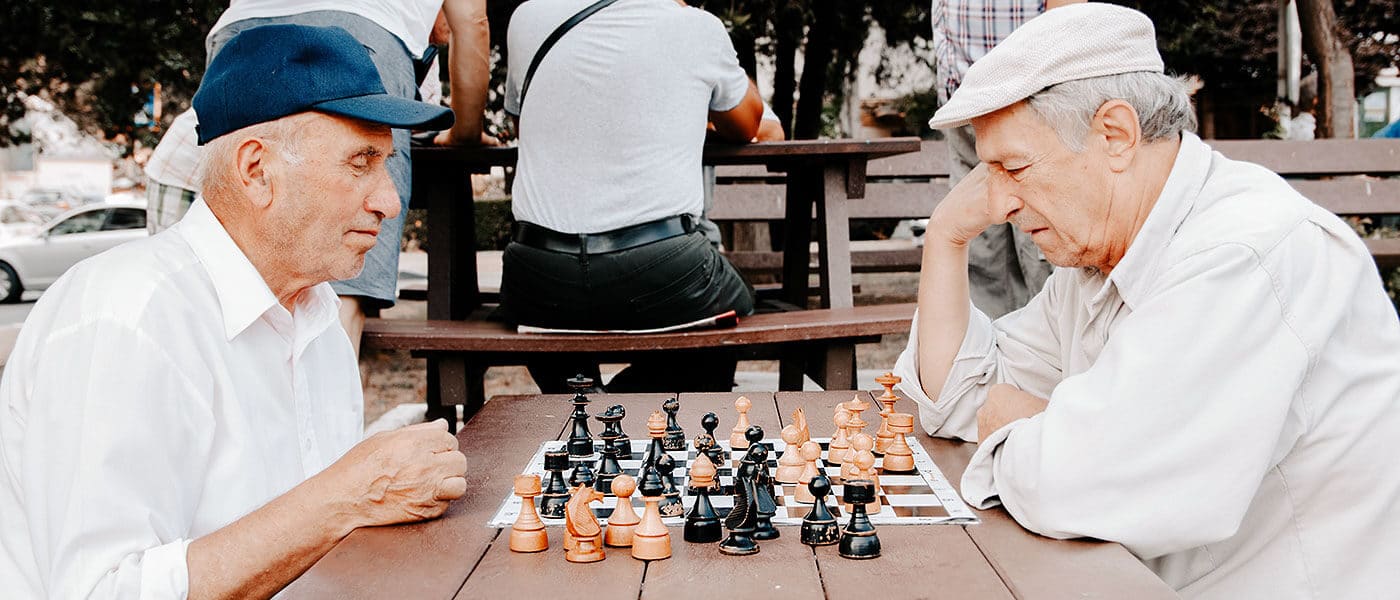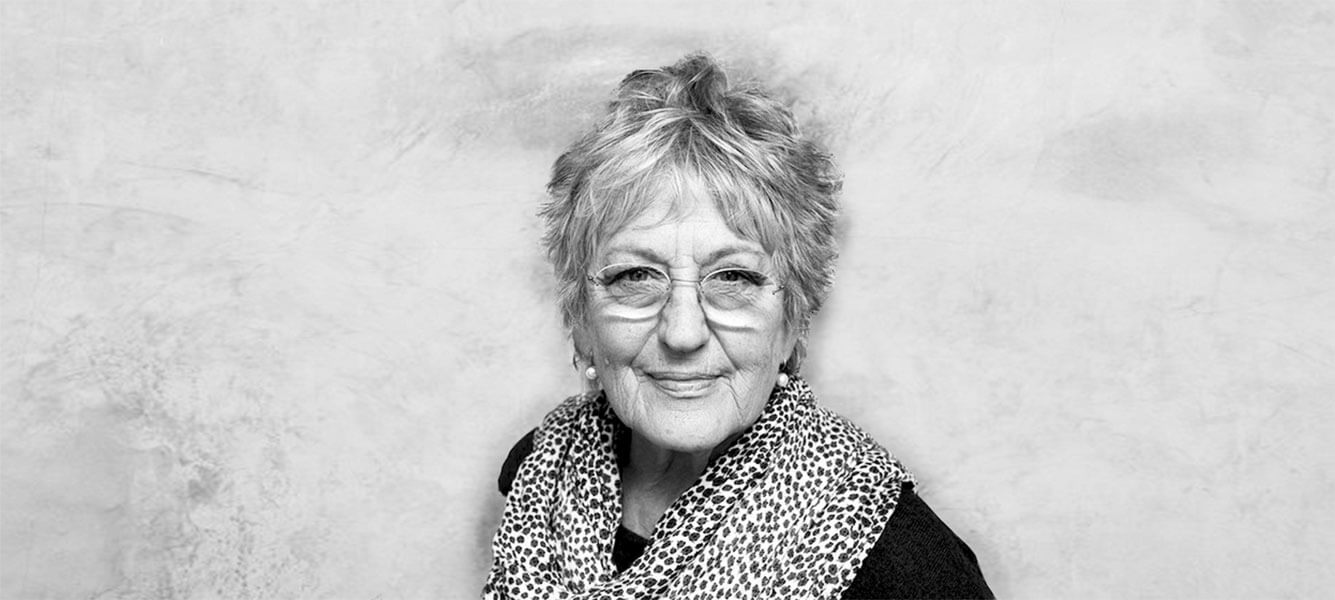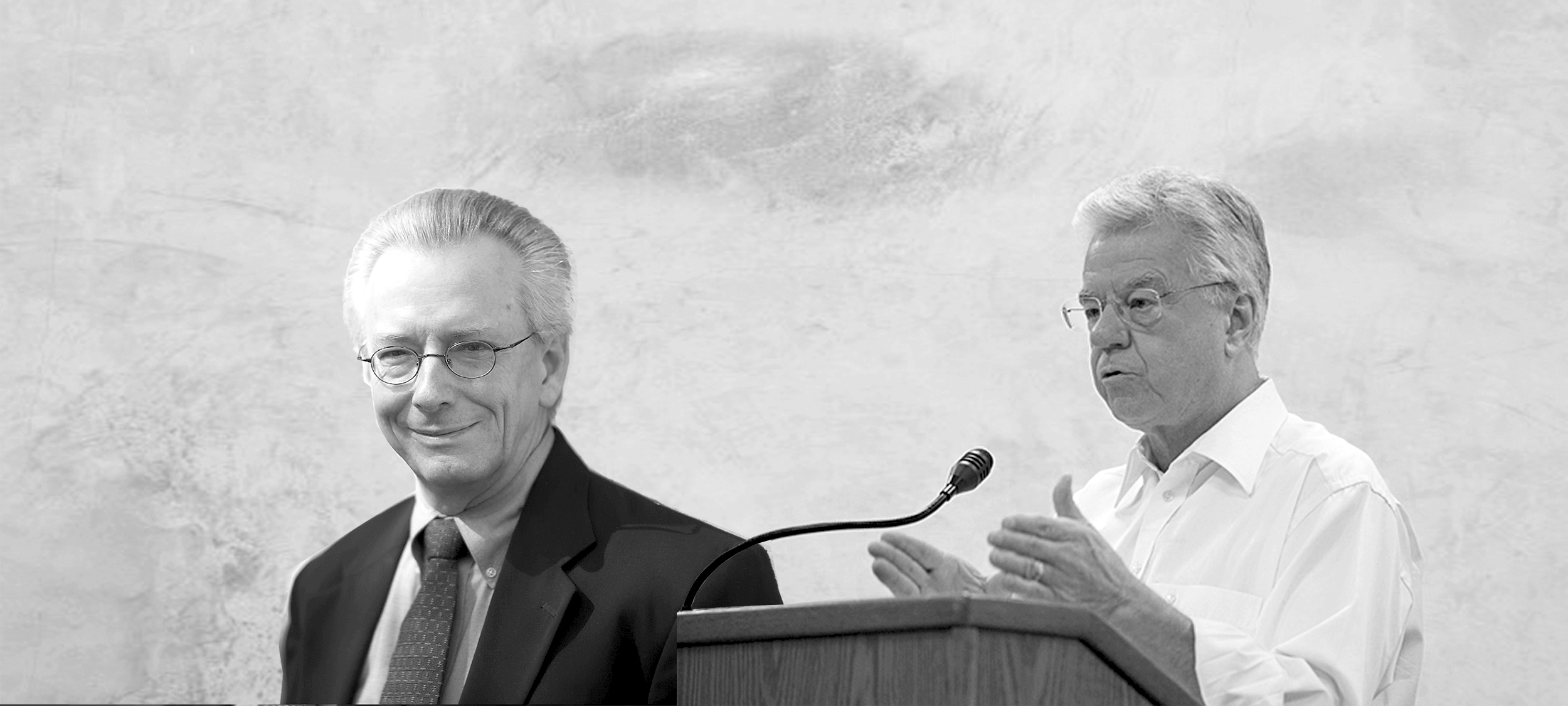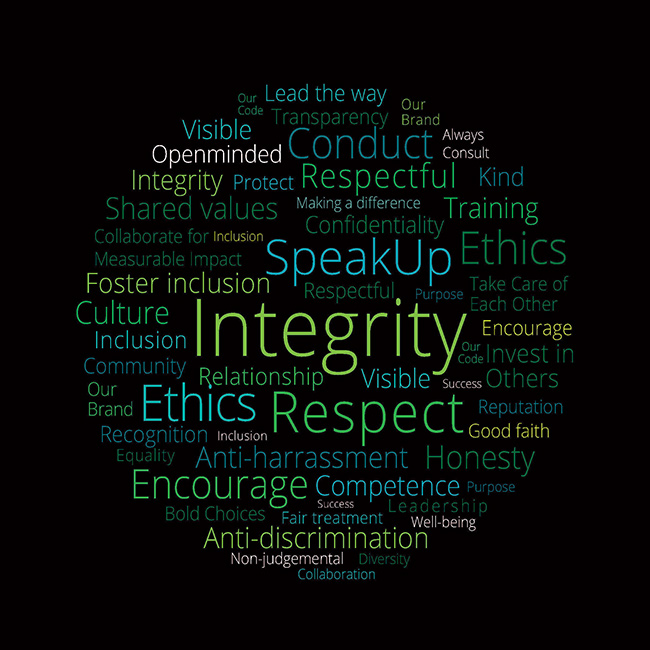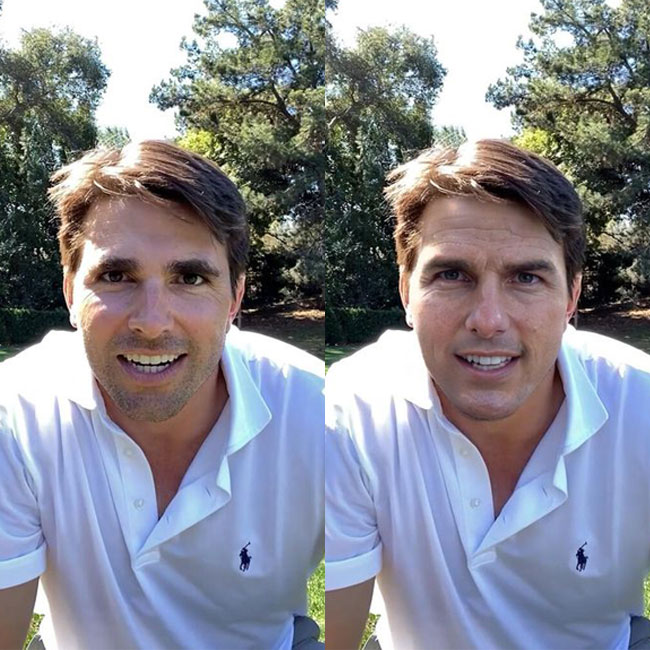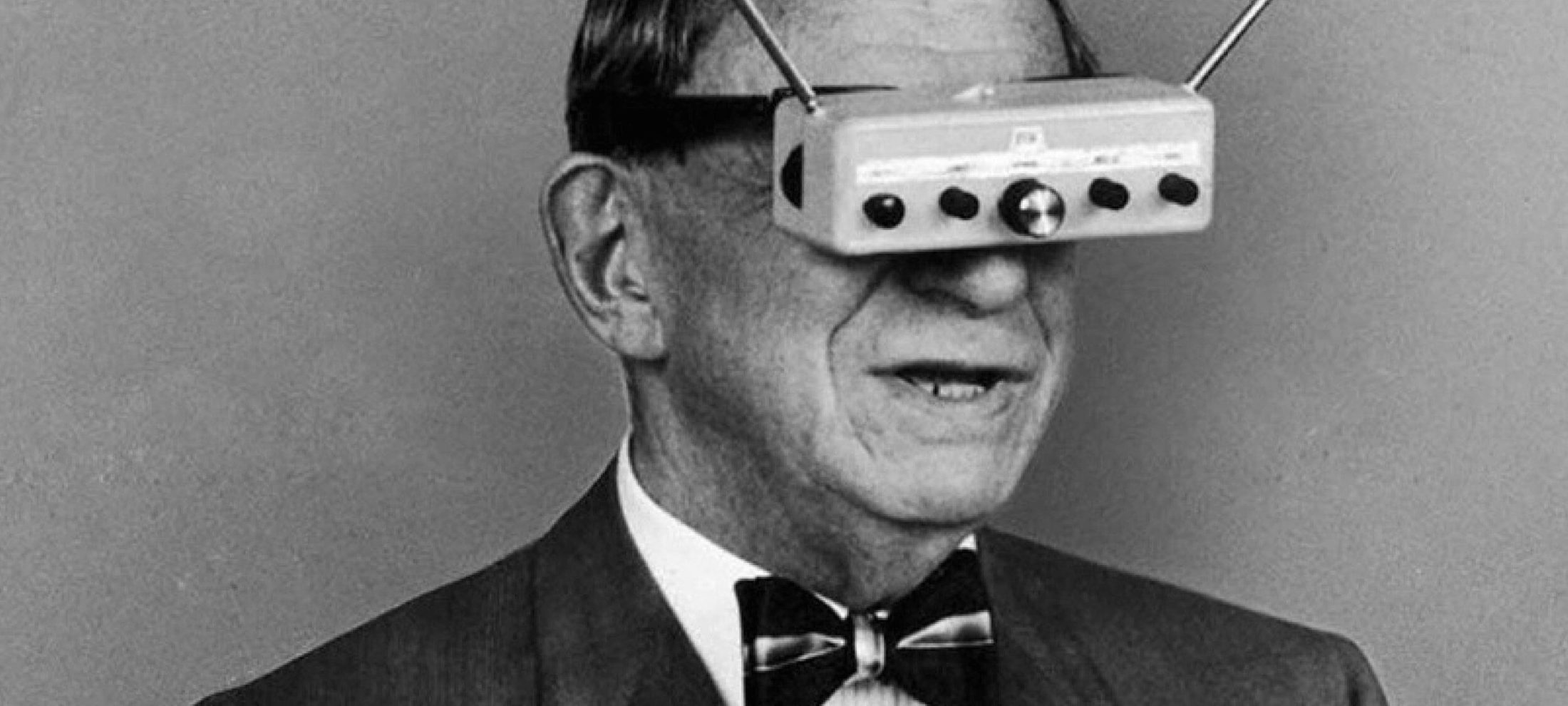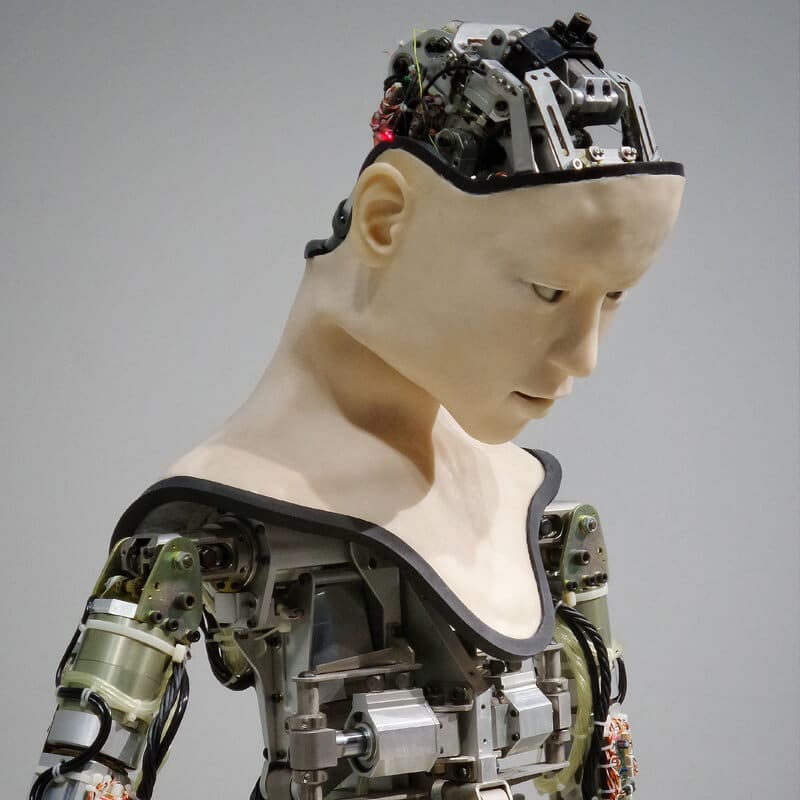Your donation is only as good as the charity you give it to
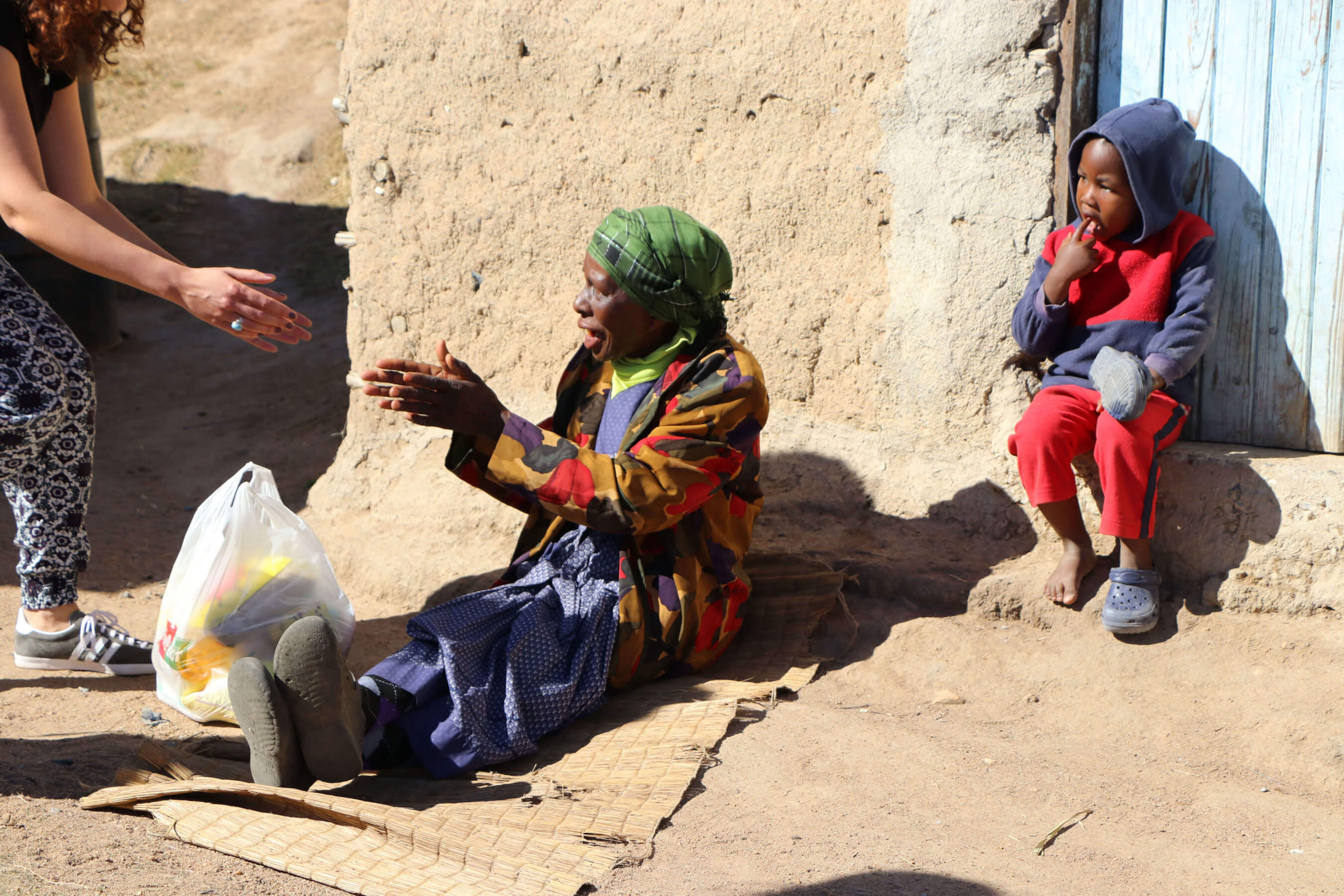
Your donation is only as good as the charity you give it to
Opinion + AnalysisBusiness + LeadershipHealth + Wellbeing
BY Sam Deere The Ethics Centre 21 JAN 2016
It’s admirable, perhaps even required, for those of us living comfortable lives in the developed world to give some time or money to ‘good causes’. We recognise fortune has smiled upon us and have a desire to ‘give back’ in some way – we have so much and others have so little, we seek to redress it.
But while there is strong agreement the fortunate have an opportunity – some would say an obligation – to use their resources to make life better for the less well-off, the discussion often ends here. That is, we think people should do something but we’re often not concerned with exactly what that something is. Should you donate to a local homeless shelter, a national medical research charity or a big international NGO? For many people, it’s unclear there’s any difference between these actions – surely they all make the world a better place?
Let’s think about that.
Say there were only two charities in the world, The Cupcake Foundation and the Real Actual Medicines Trust. The Cupcake Foundation distributes delicious cupcakes to people in hospital. The Real Actual Medicines Trust distributes medicines that will completely cure a patient’s disease. Both charities are undeniably making the world a better place but it’s pretty clear that one is doing much more good than the other. I think most people would choose to donate their money to The Real Actual Medicines Trust.
Asking these questions gets to the heart of why it is we help people. Are we altruistic because we think that making others better off is good in and of itself? Or do we just do it to stave off our middle-class guilt?
Take a different example. Let’s say that a third charity, Medicines ’R Us, is also distributing medicines, but they use generic medicines that cost half as much to produce as the on-brand medicines distributed by The Real Actual Medicines Trust. This means that a $20 donation to the Medicines ‘R Us will cure twice as many people as a $20 donation to the Real Actual Medicines Trust. Surely – given we can do twice as much good donating to the former than the latter – we should give our money to Medicines ‘R Us, thus doubling our impact.
These seem like contrived examples, but in reality, the differences between charities are astounding – not just a factor of two or three times, as in the example above, but some are ten, or even 100 times more effective than others!
Asking these questions gets to the heart of why it is we help people. Are we altruistic because we think that making others better off is good in and of itself? Or do we just do it to stave off our middle-class guilt? To impress other people? To show off?
Undoubtedly many good works are motivated by these latter factors. But are they really good reasons? Are they the reasons we’d choose? I’d certainly like to think that when I donate to charity I’m doing it for the benefit of other people. The sense of wellbeing that I get afterwards is nice but ultimately not morally important.
If it’s really other people’s benefit we care about, we need to think hard about how we choose where we spend our time and money on good causes. We don’t have infinite time and money. Every choice to donate something to one cause is an implicit choice not to donate it to another.
It might seem harsh to judge any charity less effective than any other another. Doesn’t that mean that the people served by the less-effective charity lose out? It does. But not making comparisons doesn’t mean everyone gets the help they need. It means that people who would be helped by the more effective charities lose out. More people are becoming sick, even dying, because people are choosing not to donate more effectively.
In the long run, hopefully we’ll be in a position to eradicate extreme poverty and disease from the world and we’ll have enough resources to fund all good causes. In the meantime, we should surely help as many people as we can.
Effective Altruism, a new social and philosophical movement is emerging to try to answer a fundamental question – “what is the most good that we can do?”
Effective altruism is about using evidence and reason to find ways to make the world as good a place as it can be. It tries to view all people – wherever they are in the world, even those not yet born – as being equally deserving of living happy, healthy, dignified, flourishing lives. Its proponents try to focus on the best ways of doing good. It’s just like regular altruism in that it seeks to do good for others. However, by focusing on effectiveness, it seeks to do the most good possible.
This manifests in different ways. Some people try to find the most effective charities to donate to, others try to work out which career you should choose if you want to have the biggest impact. Others think about the long-run future of humanity, reasoning that if there’s even a small chance that humans could wipe ourselves out (say, in a nuclear winter, or a deadly engineered disease escaping a laboratory), avoiding such an outcome would be a huge benefit.
It’s just like regular altruism in that it seeks to do good for others. However, by focusing on effectiveness, it seeks to do the most good possible.
Many also take a pledge to give a fixed portion of their income to effective charities – often 10 percent – because it increases the chance that they’ll actually donate, rather than putting it off for another day. In all these cases people are motivated by their sense of empathy but guided by scientific evidence and reason.
It may seem strange to think we might have an obligation to donate to one set of charities rather than others. After all, surely if someone wants to donate their money to a charity that focuses on people in their local community or on a cause that’s particularly important to them, they have that right. Of course, donation – unlike taxes – is an individual choice, not a legal obligation. But when faced with a choice of whether to help 100 people or just one, is it really a difficult decision?
Ethics in your inbox.
Get the latest inspiration, intelligence, events & more.
By signing up you agree to our privacy policy
You might be interested in…
WATCH
Business + Leadership
The thorny ethics of corporate sponsorships
Opinion + Analysis
Business + Leadership, Science + Technology
5 dangerous ideas: Talking dirty politics, disruptive behaviour and death
Opinion + Analysis
Health + Wellbeing, Relationships
To live well, make peace with death
Opinion + Analysis
Health + Wellbeing, Relationships
The truths COVID revealed about consumerism
BY The Ethics Centre
The Ethics Centre is a not-for-profit organisation developing innovative programs, services and experiences, designed to bring ethics to the centre of professional and personal life.
To live well, make peace with death

To live well, make peace with death
Opinion + AnalysisHealth + WellbeingRelationships
BY Matthew Beard The Ethics Centre 14 JAN 2016
“What do we say to the god of death?” swordsman Syrio Forel asks Arya Stark in George R.R. Martin’s Game of Thrones (and in HBO’s TV series). “Not today.”
This short refrain marks the beginning of a sustained exploration of humanity’s relationship with death told through Arya’s experiences. She becomes a murderer and later, in ‘The House of the Undying’ where death is seen as a god to be worshipped, an assassin and servant to that god.
Watching Arya’s story unfold, it seemed to me she’d never forgotten her former (you guessed it, now dead) teacher’s lesson – the only response to death is denial.
According to many thinkers, this isn’t surprising at all. Arya isn’t alone in running from death. Denying the reality of human mortality is a near universal behaviour. In The Antidote: Happiness for people who can’t stand positive thinking, Oliver Burkeman considers the writing of Ernest Becker, whose arguments Burkeman surmises. “Your life is one relentless attempt to avoid [thinking about death] – a struggle so elemental that … for much of the time you succeed.”
Becker believed to avoid confronting our mortality people invest in “immortality projects”. Art, family, business, nations, war, charity, and so on… Immortality projects aim to overcome physical death by ensuring our continued existence through symbols or ideas.
The late David Bowie promised “We can be heroes”, and that’s precisely Becker’s point. Immortality projects are attempts to become heroes, thereby avoiding the emptiness of death.
But research suggests the common instinct to avoid thinking about our mortality might be worth pushing against. In a paper entitled ‘Deliver us from Evil’, researchers found that mortality avoidance can cloud our judgements about life and death issues, leading to unreflective decisions in high-stakes situations.
The study asked two groups of people to undertake a long and generally dull questionnaire and then to read a short essay and tell researchers how strongly they agreed with it. The essay was a strong statement of support for the controversial policies of the Bush administration’s invasion of Iraq. It included lines like “It annoys me when I hear other people complain that President Bush is using his war against terrorism as a cover for instituting policies that, in the long run, will be detrimental to this country … Mr. Bush has been a source of strength and inspiration to us all. God bless him and God bless America”.
The only difference between the two groups was that one questionnaire forced subjects to consider their own mortality. The “mortality salience” group were asked to “briefly describe the emotions that the thought of your own death arouses in you” and to “jot down, as specifically as you can, what you think will happen to you as you physically die, and once you are physically dead”.
For some, even the idea of answering these questions might feel uncomfortable, as it did for the subjects in the experiment. Researchers found the “mortality salient” subjects invested more strongly in the nearest immortality project to hand – the war in Iraq. Subjects from the mortality salience group agreed strongly with the essay. By contrast, the control group generally disagreed with the essay’s sentiments.
When we’re forced to confront our own mortality, our default reaction may not be the product of rational thinking but an impulsive rejection of death.
This tells us something important – especially in a time when we are continually confronted with the threat and reality of terrorism and domestic violence nearly every day. When we’re forced to confront our own mortality our default reaction may not be the product of rational thinking but an impulsive rejection of death. The researchers argued similarly:
The fact that reminders of death and the events of 9/11 enhanced support for President Bush in the present studies may not bode well for the philosophical democratic ideal that political preferences are the result of rational choice based on an informed understanding of the relevant issues.
This poses a challenge for ethical behaviour – some of the most serious ethical decisions people face are made when they are confronted with death. Most obviously these include healthcare and political decisions with serious implications for the general populous. Is it possible to overcome mortality avoidance and make decisions based on moral values and principles instead?
Researchers weren’t optimistic on this point, but Burkeman indirectly suggests a way forward. His interest lay in whether thinking about death might enable us to live a happier life. He presents evidence that regular contemplation of death can enable us to avoid horror and shock when it ultimately arrives. “The more you become aware of life’s finitude, the more you will cherish it and the less likely you will be to fritter it away on distraction”.
The same might be true for our mortality avoidance in decision making. If regular acquaintance with death can remove some of its shocking strangeness, perhaps we will be less likely to invest in immortality projects as a way to distract ourselves from its reality. By making our peace with the fact we are all going to die, we will be less likely to make decisions based in our fear of death. If ‘Deliver us from Evil’ is any indication, this might also save lives in the long run by ensuring serious decisions are made reasonably and not from fear.
Plus, doing so might also make you happier.
Ethics in your inbox.
Get the latest inspiration, intelligence, events & more.
By signing up you agree to our privacy policy
You might be interested in…
Opinion + Analysis
Health + Wellbeing, Relationships
Five stories to read to your kids this Christmas
Opinion + Analysis
Business + Leadership, Health + Wellbeing, Science + Technology
Can robots solve our aged care crisis?
Opinion + Analysis
Relationships, Society + Culture
In Review: The Festival of Dangerous Ideas 2018
Opinion + Analysis
Relationships
What I now know about the ethics of fucking up
BY Matthew Beard
Matt is a moral philosopher with a background in applied and military ethics. In 2016, Matt won the Australasian Association of Philosophy prize for media engagement. Formerly a fellow at The Ethics Centre, Matt is currently host on ABC’s Short & Curly podcast and the Vincent Fairfax Fellowship Program Director.
BY The Ethics Centre
The Ethics Centre is a not-for-profit organisation developing innovative programs, services and experiences, designed to bring ethics to the centre of professional and personal life.
James Hird In Conversation Q&A

James Hird In Conversation Q&A
Opinion + AnalysisHealth + WellbeingRelationships
BY Aisyah Shah Idil 8 JAN 2016
With the players being unable to contact people such as the Club or for those at the Bulldogs or Port Adelaide, is there a concern as the season moves on how those players can be supported, and the things the AFL and the Clubs can put in place to help them to get through the year?
HIRD: Yeah, I’m not close enough to it anymore to know exactly what those processes are, but I know that the Clubs and the AFL Players Association has processes in place – I just can’t tell you what they are. I think the 34 players and their families will be a source of support for each other as well.
One of the difficulties is that as a player you become very institutionalised in your lifestyle. You get up at seven, you go to the Club, you train, you go home at four. You do that day after day. You’re told what to eat, you’re told what to drink, you’re told where to train, how to sleep … I think that lack of routine will be hard for them to work through.
HOLMES: The structural issue of having a High Performance team over here, independent from the Senior Coach, that doesn’t feel like a system that would go forward.
HIRD: I actually disagree with that. I don’t think a Senior Coach should be responsible for those people at all. My knowledge of medicine and of the medical department is tiny – I’m not a doctor. I’m not trying to absolve myself from what happened, I’m just saying I would never … I wouldn’t think in the future coaches would be in charge of those things at all.
You need experts and you need a Head of Football who is really a “dot I’s and cross the T’s”, process-driven person – whose got some charisma to lead. But the most important job for the coach now in the club is to be so close to his players that they play for him, to set the agenda for the game plan and is to get his coaches coaching the way he wants to. And then he’s the public face.
That’s a big job in terms of time commitment so to look after the nitty-gritty intricacies of, let’s say, the supplement program now… Other coaches would say, they don’t know what their players are given and they actually don’t want to know what their players are given because then that leads to the point where if you do know then you have to go and research it. John Worsfold at Essendon has got no time to go and research the latest supplement. That needs to be done by someone else.
HOLMES: Firstly, did any of the players ever express concern about the program – that’s the first question. And the second question is: with the benefit of hindsight is there something in particular that stands out as where you perhaps could have twigged to something going wrong.
HIRD: I think one of the things I wish I had have done better was … Stephen Dank proved A0964 was the drug or supplement I thought was the big issue. He wasn’t allowed to give that so he went and got the WADA documentation for Bruce Reid to approve and tick it off. And Bruce Reid eventually did approve it and tick it off.
He [Dank] waved a bit of paper under my nose one day and said “oh, I’ve got the approval”. Now I wish, instead of waving it under my nose and saying “oh I saw the WADA approval document”, I wish I’d got that document, looked at it, checked its authenticity … because there is a suggestion that document is not authentic. I think if we’d discovered then that document wasn’t authentic or wasn’t what they thought it was that would have set off a number of alarm bells that would have said “that’s not what we’re doing.”
And I think I would have been stronger in June or July in that meeting with David Evans and Ian Robson and said “Well, if he’s still there, we’re not working”. That’s how strong we had to be. We were very strong but we probably should have said “well if they’re there, we’re not. You make the choice”.
HOLMES: I’m intrigued about the 13 players who didn’t take part. Was there any repercussion from them? First off, do you know why they didn’t take part in the program?
HIRD: With the younger guys, Football Club policy, even when I was there as a younger player – they don’t really want to give you any supplements or medication. They want to let your body adapt and just grow and do it naturally. So there were probably 5 or 6 new guys that didn’t do it.
Jason Winderlich had a phobia for needles, so did David Zaharakis, and some of the guys just didn’t like taking supplements. I mean, whether supplements are taken orally or it’s an injection – if they’re taken either way – some people just want to eat naturally, so it was a choice and that was the choice they made.
HOLMES: Given that it’s known Melbourne had basically the same program with the same staff and that 12 other Clubs have very similar programs. How do you cope – especially given you say you were silenced for effectively three years – with the constant suggestion that it was only you and it was only Essendon who had this program. And this was only revealed on Tuesday night by Caroline Wilson.
HIRD: It’s disappointing and it’s not right, but I think we have to own our responsibility. I mean the program that we ran led to what happened. So it’s very disappointing and as I say it’s not right but you can only know what’s going on in your backyard and take responsibility and that’s what we need to do.
HOLMES: Do you think the WADA code is appropriate for a team sport such as the AFL?
HIRD: The WADA code is very big and very broad so there’s elements of it that are right. You’ve got certain drugs or certain supplements that shouldn’t be taken so that part of it’s right. But there are elements of it that aren’t right. I’m probably not the right person to ask, to be honest, because I haven’t read the WADA code in detail.
I don’t know what the alternative is, but it would seem that this sanction… Firstly the evidence and the way it was put together is wrong and it shouldn’t have happened the way it did. And secondly the fact the players are all … that “no significant fault” was given is just ridiculous. I mean, what more could they do?
They were told by Stephen Dank that everything was compliant, and they were told they were being given Thymomodulin. Now, Thymomodulin is something you’re allowed to take, so every time they get Thymomodulin should they be testing it in a laboratory? I think that’s the ridiculous nature of this decision. Let’s say they were duped – what more could they have done?
HOLMES: I was fascinated to hear the twenty minute discussion about peptides and when you were called in to talk about that. Do you think – and I don’t know if this is true or not – that you saw legal supplements and the peptides and things like that as maybe a future way to gain an advantage? And if that is true, do you think that might have, when these kind of concerns were surfacing and things like that, that maybe made you want to keep going with them and keep that very legal competitive edge. Were they something that you were fascinated by or really wanted to explore as a legal way to…
HIRD: I wasn’t fascinated by them but I was certainly of the mind that if there were a legal advantage, whether that be supplementation, whether that be a training method, whether that be a game plan then that’s fine, but it had to be within the rules.
I was very clear what those rules were and at no time did I ever want to go outside the rules. Peptides weren’t necessarily to panacea or the greatest thing that was going to help us, it was just one of many things that we looked at as a club.
HOLMES: In your first press conference you used the words “I take full responsibility”. I’m just interested in why you’ve been reluctant to use those same words since that time.
HIRD: Well, because I was told to say those words. That might be a copout but I was told to say those words by the PR person at the time. And I think when I look back that I don’t think it’s fair for me to take full responsibility.
I think if you’re expecting the head coach to take full responsibility and you’re saying he’s the head of the tree and he’s running the Football Club … at no stage was I the head of the tree or running the Football Club. I was second in line to run the Football Club and the responsibility around giving players supplements was not my responsibility.
Now I accept that as a leader in the club that doesn’t absolve me of responsibility, but it doesn’t lead to full responsibility either.
HOLMES: Are you seeking answers on behalf of players from Stephen Dank?
HIRD: I think we’ve long since tried to seek answers from Stephen Dank. We’d love him to give answers but he hides behind something every time. He promises to show things and they just don’t turn up.
HOLMES: What was your last conversation with Stephen Dank?
HIRD: I can’t remember, it was in August 2012. I’m not sure. I didn’t walk down and say “you’re sacked”…
HOLMES: Have you contacted him since then?
HIRD: No.
HOLMES: In reference to Thymodulin, why weren’t they disclosed to the ASADA testers? Was there a directive from the Club to not disclose that information?
HIRD: There was no directive from the Club and I think that was a mistake by some of the players, but if you read the CAS report it says that 34 players didn’t disclose. Well, 34 players weren’t tested in that year. Only 21 of the players were tested so there’s 13 who weren’t tested.
Another five or six – I don’t know the exact numbers – who weren’t tested at the time when they were taking Thymomodulin. I think the form asks for a certain amount of time and what have you taken. There were others who were in a hurry and didn’t always put down what they were taking… you come off the track, you’ve got to give your urine sample, you’ve got to get to a meeting so you just put down a few things. It’s definitely a mistake but to say it was sinister or deliberate I think is a step too far.
HOLMES: With Dank, you had text messages and stuff. Can you elaborate on all them?
HIRD: Yeah sure. There were 7,000 text messages between myself and the football department in the time we’re talking about. Around about 100 of those were between Stephen Dank and myself. 75% were from him – I didn’t always respond to his text messages – not one of those text messages talked about performance enhancing drugs, illegal activity…
Yes, there was some supplement talk on those text messages but it was never about cheating the system. If you read those text messages and you go through them … that’s running a department. That’s part of running a department, not trying to cheat the system.
You can present information in a way you want to present it, or you can look at it as a whole. I think a lot of those instances are presented as a small part without the context.
HOLMES: So you guys weren’t convoluting to devise this toxic culture so to speak?
HIRD: If you read the text messages I can’t see how you could say that.
HOLMES: James, I’m confused where Essendon fit into this because there’s been a lot directed at the AFL and other parties but Essendon are the ones who set up the structure with not you looking after all the medical side of it, they’ve asked you to take full responsibility … You’ve remained loyal to them. Nothing’s really come out the fact that other people ran the Football Club, that the program was run through another channel through the CEO. I don’t understand why your loyalty remained with Essendon given they’ve set you up to this position based on what you’ve said tonight.
HIRD: I don’t think they’ve set me up to this position. I can only say – and it has been said on a number of occasions – that what gets published get published. A neutral story is very rarely published in a newspaper or talked about. It’s either one side or the other, and people talk about it as either one side or the other. It’s not neutral. There’s probably only a handful of journalists who take a neutral position.
The fact is, I made mistakes, the club made mistakes, we set the ball rolling, but we didn’t keep pushing it down the hill. It had a lot of hands.
HOLMES: Why did you remain so loyal to the club and not told your story until now when their part was to walk you down a path – someone asked a question about whistleblowing before – for you to stand up and say “Hang on, we wanted this guy out. We even wanted him of the club but financials took priority over player welfare…”. You could draw that inference. It just appears that there were opportunities for you to come out before this.
HIRD: I suppose I have the view that I still, up until a couple of months before I resigned, I thought we could work through this as a Club and we could tell our story at the end and that the players would get off. The most important thing in this is not me coming out and defending myself, that’s what I believe.
The most important thing in this is trying to get the players found not guilty, get them back playing football and give them their lives back. A career goes for seven to ten years. Three years were destroyed. Now it’s a fourth year. So that was my priority, knowing there’d be a time I’d get a chance to tell my story.
Unfortunately, I’ve had to tell my story when Armageddon’s hit and the players are in a terrible position. But I do have loyalty to the club, it’s been my life – it’s my grandfather’s life, it’s my father’s life, it’s my life. So that might be blind loyalty, it may be that people see it as silly but I genuinely love the Essendon Football Club and the reason I took that deal in 2013 was because I thought it was the best thing to enable the club to move on.
HOLMES: Paul Hamilton hasn’t been mentioned much at all. With Dank reporting through to him, what insights has he given you and how much awareness did he have of that?
HIRD: I haven’t spoken to Paul since he left the club in 2012.
HOLMES: What role do you think the media has played in this – clearly a witch hunt – and what do you think they can learn from the process that’s happened and the effect on the players’ welfare?
HIRD: I don’t think the media will learn much out of this. The media are the media and they’ll report what information they’re given and they’ll twist it … well, not twist it but they’ll present it in the fashion that they think will best serve their media outlet. The media’s role is yes, to be truthful and be correct, but the media’s role I think is also – they think – to sell a story.
I think that people who were giving that information and leaking that information and corrupting the integrity of the investigation, they’re the ones who have to learn something. And if you’re the AFL, you would have to sit back in my opinion and say “we did not handle this in the best possible fashion”.
HOLMES: Do you think that if this hadn’t happened to Essendon – Stephen Dank and all this kind of thing – that it was inevitable that it would have happened at some stage to someone, and do you think the AFL were negligent in not mitigating that risk?
HIRD: The AFL undertook blood tests on the Essendon players in 2012 and sent them to Cologne because they had a suspicion that something was going on at Essendon that wasn’t right. We didn’t know that, they didn’t tell us this and we wish that they had told us. Those blood tests came back negative and so the players didn’t test positive for anything. At that stage if the AFL had of said “right-oh, there’s an issue here”, come and seen the club, I think it’d be a different story.
If Stephen Dank had gone somewhere else would this have happened somewhere else? Maybe. But this is just the worst possible situation of everything happening the wrong way.
From the Essendon Football Club not doing the right thing, or having not the right protocols for something happening that shouldn’t have happened through to manipulation at the highest levels of Government, manipulation with ASADA, manipulation with the AFL to get an outcome. Everything went wrong. I don’t think anything could ever go that wrong ever again. I hope not.
In fact that press conference should probably never have happened because ASADA hadn’t even done their investigating yet. Why would you stand up and announce to the world that you’ve got this massive investigation that hasn’t been done? You don’t know what you’re going to find yet. They may have found more, they may have found less, but it was a terrible way to flag the whole start of it.
To watch the full interview, click here.
Ethics in your inbox.
Get the latest inspiration, intelligence, events & more.
By signing up you agree to our privacy policy
You might be interested in…
Big thinker
Politics + Human Rights, Relationships
Big Thinker: Germaine Greer
Opinion + Analysis
Health + Wellbeing, Politics + Human Rights
Vaccines: compulsory or conditional?
Opinion + Analysis
Health + Wellbeing, Society + Culture
Alpha dogs and the toughness trap: How we can redefine modern masculinity
Opinion + Analysis
Relationships, Society + Culture
Five dangerous ideas to ponder over the break
BY Aisyah Shah Idil
Aisyah Shah Idil is a writer with a background in experimental poetry. After completing an undergraduate degree in cultural studies, she travelled overseas to study human rights and theology. A former producer at The Ethics Centre, Aisyah is currently a digital content producer with the LMA.
Should parents tell kids the truth about Santa?

Should parents tell kids the truth about Santa?
Opinion + AnalysisHealth + WellbeingRelationships
BY David Kyle Johnson The Ethics Centre 15 DEC 2015
Kids, stop reading now – Santa’s watching!
Most adults know Santa Claus doesn’t exist. Yet most parents try to convince their children he does and try to keep them believing for as long as they can. They use bad evidence and ridiculous explanations to encourage kids to believe because it’s comforting or fun.
Is the Santa lie immoral? Does it teach poor critical thinking skills? Perhaps, but let’s put the philosophical questions aside.
As a parent, I have other concerns. Is the fact that children thank Santa and not their parents for their gifts problematic? Should Santa be used as a disciplinary threat? Does it really encourage imagination? Does lying to my child about Santa threaten my child’s view of how trustworthy I am? All in all, is lying to children about Santa good parenting practice?
I don’t think it is. It’s not that I’d be a bad parent if I did lie to my children about Santa. I’d be a better parent if I didn’t. Here’s why.
Children who believe in Santa thank him for their presents instead of their parents. It might seem selfish for a parent to desire such appreciation, but children need to learn to give it. What’s more, making your child believe the gifts you buy them come from someone else defeats the primary function of gift giving. As a theologian recently reminded me, gifts are the giver’s way of showing the recipient that he or she has worth and is loved. Children need assurance their parents see them as worthwhile and valuable – not Santa Claus.
And as even defenders of the Santa lie agree, Santa shouldn’t be used as a disciplinary threat. “Though lying [about Santa] can be an awfully convenient parenting crutch… it’s generally best to keep it to a minimum.” Yet that’s exactly how many parents use the Santa lie.
I don’t give out bonus points to my students for attending class. Why should we reward children for a mere lack of misbehaviour?
It’s perfectly acceptable to train children to do the right thing by rewarding good behaviour and punishing the bad – but the Santa lie doesn’t do this. It promises lavish reward for a simple lack of misbehaviour.
“Stop hitting your sister or Santa won’t bring you anything.”
I don’t give out bonus points to my students for attending class. Why should we reward children for a mere lack of misbehaviour?
In addition, lying about Santa doesn’t encourage imagination – it stifles it. You can’t pretend something is true if you already believe it is. As Pascal-Emmanuel Gobry puts it, “If believing in Santa was an exercise in imagination, every kid would believe in a different Santa.” By tricking children into actually believing Santa exists we rob them of the opportunity to imagine he does.
Consider how one mother who emailed me approaches Christmas with her children:
“We have ‘played the Christmas game’ with [our children] every year. My husband and I purchase the gifts and wrap them in secret, and we place them under the tree on Christmas Eve when the kids are asleep. We talk about Santa coming and what he’ll bring… Heck, we even have an Elf on the Shelf that the kids adore. We try to think of different (crazy!) ways that Santa and the Elf come into the house, or cover the whole world in one night.
Maybe they have a spaceship? Maybe Santa multiplies? … We visit Santa at malls and the kids just LOVE telling him what they want for Christmas. But the kids know the truth 100%. That is very important for us. They know it just like my husband and I do, they just enjoy PRETENDING that they don’t. As my daughter, who’s 7, said “I know Santa isn’t real but I like believing in him.”
To encourage imagination, we should pretend along with them – suspending our disbelief while also being aware the story we’re telling is imaginary. It is possible to merge both truth and storytelling as a parent.
My final worry is simple – trust. Finding out their parents have lied to them about Santa Claus can cause children to think their parents are lying to them about a great many other things. Not always, of course, but some children are more susceptible than others. It’s perhaps even more of a risk than many parents realise.
I’ve collected countless stories about the moment children learn the truth. Many were not only embarrassed or outright livid, but actually began to distrust their parents. Recently, one man told me the moment he realised his parents had lied about Santa was also the moment he concluded they must have been lying to him about Jesus and God. He’s an atheist still today.
To encourage imagination, we should pretend along with them. It is possible to merge both truth and storytelling as a parent.
In reality, the tradition of tricking children into believing Santa literally exists is only about 200 years old. It was popularised after the idea that St Nicholas breaks into the house while the children are asleep to deliver presents was invented by Clement Clarke Moore’s poem A Visit from St. Nicholas in 1823. It did not describe an already existing tradition.
The idea was sold to us by rich New Yorkers and business for various reasons – mainly financial – but I think it’s high time that we gave it up. It’s not that we should eliminate the Santa myth from our Christmas traditions entirely, but tricking our children into literally believing Santa actually exists needs to stop. Not only is it bad parenting, but as many parents who avoid the lie have made clear to me, it is in no way necessary for holiday fun or Christmas magic.
Ethics in your inbox.
Get the latest inspiration, intelligence, events & more.
By signing up you agree to our privacy policy
You might be interested in…
Explainer
Health + Wellbeing
Ethics Explainer: Hedonism
WATCH
Relationships
Purpose, values, principles: An ethics framework
Opinion + Analysis
Health + Wellbeing, Relationships
Eight questions to consider about schooling and COVID-19
Opinion + Analysis
Business + Leadership, Health + Wellbeing, Science + Technology
Can robots solve our aged care crisis?
BY David Kyle Johnson
David Kyle Johnson is an associate professor of philosophy at King’s College, Pennsylvania. He is author of The Myths that Stole Christmas: Seven Misconceptions that Hijacked the Holiday (and How We Can Take It Back).
BY The Ethics Centre
The Ethics Centre is a not-for-profit organisation developing innovative programs, services and experiences, designed to bring ethics to the centre of professional and personal life.
Feminist porn stars debunked

Feminist porn stars debunked
Opinion + AnalysisHealth + WellbeingPolitics + Human Rights
BY Laura McNally The Ethics Centre 9 DEC 2015
So-called feminist porn star James Deen has faced shocking accusations of rape from numerous women, including several female porn actors.
If true, it’s crucial Deen and men like him are held to account. But it’s also vital that porn producers, wholesalers, web hosts, and investors are not given a free pass. The porn industry deserves critique for feigning interest in respectful consensual sex while creating and profiting from its opposite – and doing so under the banner of feminism and ethics.
The porn industry is starting to brand itself as educational and ethical. The likes of Playboy are dedicating column inches to feminism, porn sites are handing out college scholarships and entire genres of porn are being dedicated to feminism.
“Feminist porn” is frequently cited as a solution, despite its limited popularity. Should it give us hope for a future of ethical porn? Recent events suggest not.
Deen’s ex-partner Stoya says he coerced her and pinned her down despite her pleas to stop. Her claims were followed by those of several other women alleging Deen had punched, injured, assaulted or anally raped them either on or off set. According to one:
He starts going crazy … extreme, brutally … He just starts shoving things in to the point where he ripped it [her rectum] and I bled everywhere. There was so much blood I couldn’t finish the scene.
Deen brands himself “a guy who bangs chicks for a living”. He features in numerous titles such as Teenaged Whores 5 and Triple Penetrated in Brutal Gangbang. Deen frequently appears on rough sex sites. He is also viewed as a “male feminist” by supporters.
But the accusations paint a different picture – of dangerous, misogynist ideals that hardly seem out of place in the thinly veiled “ethical” porn industry.
The popular notion that porn is mere fantasy with no link to real-world behaviour is challenged by the suggestion some of Deen’s ‘frape’ (fantasy rape) scenes may have been genuine rape on film. Moreover, it is alleged many of the porn crew were aware these acts were rape and congratulated Deen for getting anal scenes when they hadn’t been consented to.
These rape accusations make it clear pornography is not mere fantasy. Some may be footage of sexual violence and it has real negative effects for producers and consumers.
Yet, those harms are frequently denied. Such was the case when the ABC aired Australians on Porn. A Gold Coast Sexual Assault Centre Director was quoted on porn’s link to sexual violence:
“The biggest common denominator of the increase of intimate partner rape of women between 14 and 80 is the consumption of porn by the offender … We have seen a huge increase in deprivation of liberty, physical injuries, torture, drugging, sharing photos and film without consent and deprivation of liberty.”
This evidence was dismissed as “irrelevant” by some on the panel – the majority of whom were porn users and supporters. Porn, they suggested, isn’t to blame for negatively shaping behaviours. Rather, it opens minds and provides new ideas for the bedroom.
This argument sharply contrasts with police views and consistent research regarding the harmful effects of pornography. Studies backed by numerous meta-analysis show attitudes toward gender equality, sexual aggression and rape acceptance are worse for viewers of pornography.
The question is not whether a man can be feminist and a porn actor, but why an industry that promotes sexual violence and rape porn is regarded as ethical at all.
Young women are increasingly at risk. Forty percent of UK teenage girls report experiencing coerced sex acts and 25 percent report pressure to send pornographic texts. The ABC’s panel failed to include any person who could speak to the effect of porn in normalising harassing behaviours, sexual coercion, non-consensual filming or sexual violence. Nor did the panel give a flicker of thought to those harmed in production, or the girls, women and men who have quit on account of physical or emotional injury due to trends toward rough sex, choking and facial abuse.
After dismissing concerns about porn, the panel swiftly refocused on the positive effects of ethical and feminist porn before cutting to air a porn scene.
The ABC panel exemplified the dismissal of social harms with tokenistic stories of good. Those invested in porn are not unique from other industries in derailing critical dialogue with a perfunctory nod toward ethics.
These cynical displays of ethics are also used to gain greater political reach. Porn as sex education was recommended by some among the panel. James Deen regularly penned sex advice columns for mainstream feminist publications.
The question is not whether a man can be feminist and a porn actor, but why an industry that promotes sexual violence and rape porn is regarded as ethical at all. What of the ethical considerations stemming from the millions masturbating to scenes of sexual violence on film?
An industry that contributes to and profits from rape culture is an unlikely ally for gender equality.
Ethics in your inbox.
Get the latest inspiration, intelligence, events & more.
By signing up you agree to our privacy policy
You might be interested in…
Opinion + Analysis
Climate + Environment, Health + Wellbeing, Society + Culture
Melbourne Cup: The Ethical Form Guide
Opinion + Analysis
Politics + Human Rights, Relationships
What’s the use in trying?
Opinion + Analysis
Health + Wellbeing, Politics + Human Rights
Disease in a Time of Uncertainty
Opinion + Analysis
Society + Culture, Politics + Human Rights
What happens when the progressive idea of cultural ‘safety’ turns on itself?
BY Laura McNally
Laura McNally is a psychologist, author and PhD candidate researching the political implications of corporate social responsibility. She is the chair of the Australian branch of Endangered Bodies.
BY The Ethics Centre
The Ethics Centre is a not-for-profit organisation developing innovative programs, services and experiences, designed to bring ethics to the centre of professional and personal life.
Is your workplace turning into a cult?

Is your workplace turning into a cult?
Opinion + AnalysisBusiness + LeadershipHealth + Wellbeing
BY Petrina Coventry The Ethics Centre 24 NOV 2015
If every culture has a little bit of cult in it, how do we know when there is risk of the line being crossed? There are a few signals worth keeping an eye on.
Good news cultures
Does everything seem a little bit too wonderful? Do you feel as though people are insisting that you accept how wonderful the organisation is? Good news culture can sometimes hide behind the guise of good PR – a glossy front, shiny happy people adorned in corporately branded t-shirts and caps.
If you sense that questioning, doubt, or dissent is discouraged or even punished for fear of undermining the morale or image of the organisation, a good news culture could be at play.
Dominant logic
Ever heard of groupthink? Cults and organisations alike can generate a uniform way of thinking and communicating featuring jargon and particular decision-making processes. If your organisation’s meetings and strategic documents are full of jargon, or alternative approaches from employees are rejected with statements like, “it’s not the way we do things here”, you might be crossing the line into cultish culture.
Elitism
Organisations that claim special, exalted status can generate polarising us-versus-them thinking. This in turn can pit the organisation against the wider community and divorce organisational values from those of the broader community. Many organisations claim to “only recruit the best”, but when “the best” happen to emulate and follow the rules or standards of the group it should be considered a warning sign.
‘Dear Leader’ syndrome
‘Dear Leaders’ can create elitism and intimacy among followers, allowing access only to those with unquestioning commitment to their belief system and ideology. Ask yourself who has access to the leader – are dissenting voices allowed, or only ‘yes’ men and women?
They often hold conflicting standards – the rules for followers do not apply to the leader.
When the polished charismatic face of an organisation has an internal following full of devotion to their ideas or ideology, it may be time to be concerned.
These leaders may claim new methods of wealth creation, life success or social influence. Their new solutions or ideology may appear able to solve serious and previously insurmountable problems.
They direct attention towards themselves while feigning humility. In doing so, they create dependency and obedience within an organisation by ensuring the wellbeing of the members is tied to their own wellbeing.
When the polished charismatic face of an organisation has an internal following full of devotion to their ideas or ideology, it may be time to be concerned. They can make it impossible to build a consistent ethical culture within the organisation.
Devotional blindness
Do your colleagues seem unusually committed to their ‘Dear Leader’, their ideology, role, status or wealth? Is worship or adoration being generated for the leader and close followers? Does the organisation seem to be venerated in an unusually fervent way? Devotion and adoration can override decisions people would otherwise make in their life. Blind subservience to the leader, group or ideology in cults can radically alter personal goals and commitments an individual had before joining.
Cults expect members to devote inordinate amounts of time to the group and group-related activities at the expense of self-identify or ties with family and friends. They forget their non-group identity and may fear reprisals if they consider leaving the group.
Ideology and exalted ends
When zealous attainment of what seems like an extraordinary goal seems prevalent, be concerned. Zeal for greater profit margins and work success can lead leaders and employees alike to rationalise unethical or ill-considered methods.
Zeal for greater profit margins and work success can lead leaders and employees alike to rationalise unethical or ill-considered methods.
Be sceptical of work cultures that drive debilitating schedules or tolerate sleep deprivation and employee burnout. Exaggerated ambitions or an exclusively achievement-oriented culture should also be viewed carefully. Do not tolerate leaders who justify the means only by whether they achieve stipulated goals.
Scapegoating and marginalisation
Most cults rely on intimidation to maintain their organisational identity. They use humiliation and blame to control their members, often through peer pressure and subtle forms of persuasion. When dissent or criticism is not permitted and individuals are marginalised or excluded from decision-making, you have problems.
Fortressing
Be concerned when transparency is admonished or there is widespread fear that rival people or groups are aiming to undermine the organisation. A simple measure of this is the overuse or abuse of confidentiality agreements. The ability for individuals to discuss their business should only be restricted with good reason. Paranoia and secrecy should not undermine professional transparency.
Does any of this sound familiar? You can find examples of any of these situations in organisations at any time. The real danger is when you find recurring clusters of the signals. If you do spot clusters, don’t despair – many organisational cultures have been redeemed by taking a few simple steps.
Click here to learn about the steps you can take to improve your business culture.
Are you currently dealing with an ethical dilemma? A conversation with an objective, independent person can really help. Call Ethi-call, our confidential ethics helpline, on 1800 672 303 for free anywhere in Australia.
Ethics in your inbox.
Get the latest inspiration, intelligence, events & more.
By signing up you agree to our privacy policy
You might be interested in…
Big thinker
Health + Wellbeing, Politics + Human Rights
Big Thinkers: Thomas Beauchamp & James Childress
Opinion + Analysis
Business + Leadership
The case for reskilling your employees
Reports
Business + Leadership
The Ethical Advantage
Opinion + Analysis
Business + Leadership, Relationships
Workplace romances, dead or just hidden from view?
BY Petrina Coventry
Petrina Coventry is Industry Professor and Director of Development with the University of Adelaide Faculty of the Professions and the Business School. She previously held global vice president roles with the General Electric Company and The Coca Cola Company in the United States and Asia and was most recently CHRO with Santos Ltd.
BY The Ethics Centre
The Ethics Centre is a not-for-profit organisation developing innovative programs, services and experiences, designed to bring ethics to the centre of professional and personal life.
Germaine Greer is wrong about trans women and she’s fuelling the patriarchy

Germaine Greer is wrong about trans women and she’s fuelling the patriarchy
Opinion + AnalysisHealth + WellbeingRelationships
BY Helen Boyd The Ethics Centre 9 NOV 2015
I’ve been doing work with and for trans women for about 15 years now. And the thing I tell most audiences at the outset is this – once you know one trans person, you know one trans person. That is all you know.
Germaine Greer has met a few trans women and she has made a decision about all trans women. She has decided that trans women are not women.
I am going to give her the benefit of the doubt and assume she is not making such a sweeping statement based on personal and anecdotal evidence. This leaves only biology and theory as ways to determine what defines a woman.
Let’s start with biology.
I believe trans women are not just women, they are female. This is a hang-up on the part of many feminists who are still stuck in some world where biology is destiny. Because if ‘woman’, as de Beauvoir argued, is a social construct, we become women by living as women in the world, by facing oppression based on gender. For some women, that social conditioning starts with birth because of a vagina and a doctor’s declaration. For others, it starts at 15, 45, 75…
There is nothing feminist about asserting the rights of the oppressors over the dignity and value of the oppressed.
Trans women are aware they are female and are meant to have bodies that allow others to gender them correctly. Harry Benjamin, a pioneer in trans issues, saw attempts to change the minds of transgendered people as not only futile but un-Hippocratic. Changing minds caused unnecessarily suffering. So he designed a way to change bodies.
Definitions of sex are based on very little – chromosomes and hormone dominance. The combination of those two is what creates a sexed body, but we also know that bodies with vaginas sometimes come with XY chromosomes and vice versa.
We also really have no idea what part of the brain “tells” us our sex. Mostly, for those of us who are not trans, we never face a disruption between our bodies/glands/hormones and the way we are socialized. Trans people do. Some experience a crippling, brutal disruption. They experience gendered oppression both internally and externally.
Which is all my way of saying ‘female’, like ‘woman’, is an unstable category. Its very definition is changes based on what we know about bodies, chromosomes, hormones, foetal development, and particularly brain sex.
So we turn to theory for a definition of woman instead.
As a feminist my compassion is with those who experience gendered oppression of any kind. My intersectional feminism recognises all women experience gendered oppression in different ways. For black women, gendered oppression is racialized. For poor women, gendered oppression is classed. For trans women, gendered oppression is transphobic.
I don’t know how Germaine Greer missed out on 30+ years of gender theory, positing that woman is a stable, universal and identifiable category. It hasn’t been for a very long time. I also don’t know how she can be any kind of post-structural feminist and not acknowledge that socialization is what makes a woman a woman.
I don’t know of a group of women right now who are more restricted or oppressed by someone else’s definition of ‘woman’ than trans women.
And I don’t know of a group of women right now who are more restricted or oppressed by someone else’s definition of ‘woman’ than trans women (except, of course, black women and lesbians and childfree women and post-menopausal women). ‘Woman’ is, after all, a category of patriarchy’s making.
It pains me to see a feminist borrow tools from the master’s toolbox and call them liberation.
Germaine Greer is wrong. She carries a greater resonance and burden because we expect such remarkable feminism and knowledge from her. She is not dismissible or stupid, but she is still wrong. Everything I know as a feminist is built on inclusion. ‘Woman’ is an alliance, not an identity you choose. It is the sum of all of the parts of what it is to live in a patriarchy and to feel no power and a tremendous threat of violence if you don’t follow the rules.
If there is anyone in the world who is experiencing those things right now, it is trans women. She is not just upsetting people by saying what she says. She is giving those who hate trans women permission to make their lives more miserable. And there is nothing feminist about asserting the rights of the oppressors over the dignity and value of the oppressed.
Her stance is not just harmful and illogical but more than anything else it seems spiteful, exclusive, and lacking in compassion. It is not my feminism, and no feminist worth her salt would exclude other women based on how good or how bad they are at being women. And she is doing exactly that.
Read a different take on trans women and Germaine Greer here, by Aoife Assumpta Hart.
Ethics in your inbox.
Get the latest inspiration, intelligence, events & more.
By signing up you agree to our privacy policy
You might be interested in…
Opinion + Analysis
Business + Leadership, Health + Wellbeing
The super loophole being exploited by the gig economy
Opinion + Analysis
Relationships
Ethics Explainer: Peter Singer on charitable giving
Explainer
Relationships
Ethics Explainer: Virtue Ethics
Opinion + Analysis
Relationships, Society + Culture
The ‘good ones’ aren’t always kind
BY Helen Boyd
Helen Boyd is the author of My Husband Betty and She’s Not the Man I Married: My Life with a Transgender Husband.
BY The Ethics Centre
The Ethics Centre is a not-for-profit organisation developing innovative programs, services and experiences, designed to bring ethics to the centre of professional and personal life.
Maggie Beer: Good food can drive better aged care

Maggie Beer: Good food can drive better aged care
Opinion + AnalysisHealth + Wellbeing
BY Matthew Beard The Ethics Centre 6 NOV 2015
Cooking guru Maggie Beer has turned her culinary prowess to the considerable task of dishing up better food for the elderly, whether they’re living at home or in aged care. With her team at the Maggie Beer Foundation, she’s coordinating a movement that will bring the healing power of food to those who need it.
“We want to give them the energy to create mobility… So many people in the industry are working so hard often without the support, without the newest thinking or ideas, without the specialised training and without being valued,” Beer explains.
Loneliness and hopelessness can be a challenge to good nutrition. The elderly – especially the bereaved – can struggle to rationalise the effort and expense of cooking for themselves. Not only is it demanding on time and energy, it can be a reminder of loss.
It’s not surprising frozen meals and food delivery services become attractive. But this brings us back to nutrition. “So many of them are ordering Lite n’ Easy!” Beer bemoans. “Nutritionally, it’s the exact opposite of what they need”, which is, among other things, full-fat meals high in protein and calcium.
Better food and better food communities represent a solution. Taking a meal is a traditionally communal enterprise that nourishes the body and the soul.
“Loneliness is a huge thing so we’re trying to bring people together – even once a month – to share a meal and be part of a wider community,” says Beer.
Passion also plays a part. Beer is in the business of cultural change and she wants a passion for food to be part of the solution.
She hopes for “a kitchen culture [in aged care] where chefs and kitchenhands are proud of the food that’s being produced.” This pride in creating beautiful food trickles outward. It creates more energetic residents, but also reveals to staff the therapeutic power of pleasure.
“It makes them [the staff] proud and celebrates those providing the food,” she explains.
Beer is battling against those who allow the elderly merely to exist rather than live a full, enriching life. So is the problem with food in aged care a symptom of the broader social malady – our collective attitudes to ageing?
“It’s endemic”, says Beer. “We need to find those industry leaders who don’t have the preconceived notion that the elderly can be cared for without soul… I want to create a sense of outrage about [elderly people] who are merely existing.”
Cultural change is important to improve conditions for those in aged care right now. Beer is less concerned about the next generation of elderly.
“Baby Boomers have been making changes all their life – they won’t accept the status quo. But people need help and support now. They’ve lived hard lives and not complained. Now they need to feel valued.”
Beer is no slouch on the pragmatics of cultural change. Her strategy could have been pulled straight from Aristotle who believed ethical role models were necessary for good education. Beer is looking for examples of industry best practice to serve as benchmarks for others.
Using these benchmarks successfully will require leaders who are open to improvement – and a recommitment to the industry values that inform aged care.
“If you have a leader who knows how much good food can give to the resident pleasure and wellbeing, [it creates] a totally different attitude to those who see it as a means of keeping people alive… By finding the great examples, celebrating them and using them as benchmarks, there is so much we can do,” she says.
There are a number of such leaders around. Off the cuff Beer lists a range of projects she knows of or is involved with. From architecture to linguistics and gardening, progress is being made.
It isn’t just about changing the system, but each individual’s attitudes to include the elderly as part of the community. In that spirit, I ask Beer for three dishes every grandchild should be able to cook for their grandparents.
“It should be nutritious, but with lots of flavour and nostalgia”, she says. “Shepherd’s pie, a chicken soup with lots of vegies, and bread-and-butter pudding full of eggs, custard, and cream.”
The German philosopher Ludwig Feuerbach quipped, “philosophers have broken their heads over the question of the bond between body and soul. Now we know… eating and drinking hold together body and soul, that the searched-for bond is nutrition.”
He seems to have found his muse.
Ethics in your inbox.
Get the latest inspiration, intelligence, events & more.
By signing up you agree to our privacy policy
You might be interested in…
Opinion + Analysis
Health + Wellbeing, Relationships
Ask me tell me: Why women think it’s ok to lie about contraception
LISTEN
Health + Wellbeing, Business + Leadership, Society + Culture
Life and Shares
Opinion + Analysis
Health + Wellbeing, Relationships
Academia’s wicked problem
Opinion + Analysis
Health + Wellbeing
Your kid’s favourite ethics podcast drops a new season to start 2021 right
BY Matthew Beard
Matt is a moral philosopher with a background in applied and military ethics. In 2016, Matt won the Australasian Association of Philosophy prize for media engagement. Formerly a fellow at The Ethics Centre, Matt is currently host on ABC’s Short & Curly podcast and the Vincent Fairfax Fellowship Program Director.
BY The Ethics Centre
The Ethics Centre is a not-for-profit organisation developing innovative programs, services and experiences, designed to bring ethics to the centre of professional and personal life.
Are there any powerful swear words left?

Are there any powerful swear words left?
Opinion + AnalysisHealth + WellbeingRelationships
BY Rebecca Roache The Ethics Centre 4 NOV 2015
Despite its usefulness when you lock your keys in the house, or forget about a crucial meeting or trip on your child’s toy, people object to swearing. The justifications are usually moral, or quasi-moral. We’re often told swearing is disrespectful, impolite, aggressive, intimidating or insulting.
It is also common to hear a pragmatic objection to swearing. We risk wearing out swear words by saying them too often. If overused, swear words will lose their power to shock. Too much swearing will result in a bland, emotionally inert vocabulary.
Is this true? Is it already happening?
This pragmatic worry is well founded. Philosopher Joel Feinberg remarked that swear words “acquire their strong expressive power in virtue of an almost paradoxical tension between powerful taboo and universal readiness to disobey”. We need the taboo to make swear words powerful in the first place. And we need to break the taboo in order to make use of their power.
If we are too eager to disobey a taboo then we risk losing the taboo. This frequently happens in other areas of life, often for the better. Public displays of homosexuality were shocking 20 years ago but – at least in the UK and many other countries – not now, largely thanks to an increasing visibility and openness about sexuality.
This might be happening with swearing too. There are more opportunities to encounter swearing, due to increasingly liberal attitudes and the proliferation of uncensored discussion on the internet. A report by the BBC and the ASA (the Advertising Standards Authority) found that “fuck” – once close to the pinnacle of offensiveness – is less shocking than it used to be.
We probably have a few years to go before the Queen uses her Christmas Day speech to report that she has had a “fucking shit year”.
But this underestimates the complexity of how we shock people by swearing. While “fuck” is pretty ubiquitous in some situations, there remains a strong taboo against using it in other contexts. We probably have a few years to go before the Queen uses her Christmas Day speech to report that she has had a “fucking shit year” rather than an annus horribilis. It will be a while before your doctor breaks news of your terminal illness by saying, in a most sympathetic voice, “You are totally fucked”.
And even in contexts where we can swear more freely, much depends on how we swear. Your Facebook friends may not bat an eyelid at your Saturday night status update, “Fucking wasted again”.
You might, however, put a few noses out of joint if you respond to their cheerful birthday wishes with a “Fuck you!” Using swear words to shock is not purely a matter of the availability of shocking words.
In any case, even if “fuck” really were to lose its shock value we still have plenty else to choose from. Many people who don’t mind “fuck” still draw the line at “cunt”. If you really want to get someone’s attention in these enlightened times, you could utter a racist or homophobic slur. The offensiveness of this sort of language has increased at the same time as the offensiveness of “fuck” has decreased.
There are persuasive moral reasons why you shouldn’t use prejudicial language, but the issue here is not the ethics of offensive language, but whether we have any powerful swear words left. The availability of shocking words tracks what people find offensive. As long as we remain offended by something or other, we will have the capacity to offend people by referring to it. And if offensive ways to refer to it don’t exist, we can invent them.
If you’re looking for a way to shock and offend, to express anger or to help you cope with the pain of stepping barefoot on a piece of Lego, you don’t need to resort to hate speech. You don’t need to swear either. Just break a few taboos.
Go on Facebook and tell your best friend his new baby is ugly. Tell your boss she’s put on weight. Loudly summarise your preferred masturbation techniques for the benefit of everyone in your train carriage.
Hell, you don’t even need to use language. Give your colleagues the middle finger. Turn up to work naked. Take a dump in the aisle during a church service. Write an online essay replete with swear words and disconcerting examples.
With a little imagination we can find limitless and powerful ways to offend people if that’s what we want to do. We don’t need to give a fuck about whether our favourite swear words are declining in their capacity to shock.
Ethics in your inbox.
Get the latest inspiration, intelligence, events & more.
By signing up you agree to our privacy policy
You might be interested in…
Opinion + Analysis
Relationships, Science + Technology
To see no longer means to believe: The harms and benefits of deepfake
Opinion + Analysis
Health + Wellbeing, Relationships, Science + Technology
When do we dumb down smart tech?
Explainer
Relationships, Science + Technology
Ethics Explainer: Post-Humanism
Opinion + Analysis
Health + Wellbeing, Science + Technology
Twitter made me do it!
BY Rebecca Roache
Rebecca Roache is a British philosopher and Senior Lecturer at Royal Holloway, University of London, known for her work on the philosophy of language, practical ethics and philosophy of mind.
BY The Ethics Centre
The Ethics Centre is a not-for-profit organisation developing innovative programs, services and experiences, designed to bring ethics to the centre of professional and personal life.
Anthem outrage reveals Australia’s spiritual shortcomings

Anthem outrage reveals Australia’s spiritual shortcomings
Opinion + AnalysisHealth + WellbeingRelationships
BY Simon Longstaff The Ethics Centre 2 NOV 2015
This article was originally published on The Age.
The decision by Cranbourne Carlisle Primary School in 2015 to allow some of its students a temporary exemption from singing Australia’s national anthem has sparked outrage in some quarters.
Those exempted all belonged to the Shiite faith, a branch of Islam. But I expect these students usually sang the anthem with as much pride as any other Australian child.
However, on this occasion, the opportunity to sing fell during the month of Muharram – a period of mourning during which Shiites remember and honour their founder, Imam Hussein. This is a month of solemnity in which Shiites are to avoid all joyful acts, including singing. It captures some of the tone of the Christian period of Lent which was traditionally a time devoted to pious reflection and avoiding overtly pleasurable activities.
So what might be said about a school’s decision to let children put religious observance ahead of patriotic duty?
There would have been barely a ripple of dissent if the issue had been one of physical capacity.
The first thing to note is there would have been barely a ripple of dissent if the issue had been one of physical capacity. Imagine a young girl who has recently returned to school after throat surgery. She feels fine. Her voice has returned to normal and all discomfort has gone.
However, her doctor has warned she is not to shout or sing for the next month to protect against scarring. She must also avoid dust and smoke, and stay indoors where possible.
Her first day back coincides with the school assembly. By tradition, the school meets under the spreading oaks that are the its finest feature. The classes are formed up around a central pole where the Australian flag is raised each morning as the national anthem is sung by all.
The student wants to join her classmates at assembly and participate equally in the proceedings. Like every child her age, she does not want to stand out from the crowd. But her mother has explained the situation to the school principal, so instead of singing the national anthem with gusto, she finds herself sitting inside her classroom waiting for the others.
Now, would this student, her parents or the school authorities be blamed for not singing the national anthem or for not being at assembly? I think not.
Yet the analogy between this hypothetical and the Carlisle case is good in all respects but one. The risk faced by students at Carlisle was of a spiritual rather than physical order.
The idea of spiritual risk or disorder has become unfamiliar in an increasingly secular society. For many people, it is perplexing that someone might genuinely fear ‘sinful conduct’ or that such a concern takes precedence over civic duty.
Yet not so long ago a majority of Australians believed in hell and the possibility of ‘eternal perdition’. Indeed there are still people who would choose to be imprisoned or die rather than act against their religious beliefs or conscience.
The fact that the spiritual worldview is so unfamiliar to us does not make it any less real or powerful for those who are pious and concerned for the health of their souls.
One might doubt the validity of the metaphysics but not the sincerity of the believers.
The Shiite children of Cranbourne Carlisle Primary School were neither rejecting nor disrespecting Australia when they temporarily withdrew from their assembly. They were protecting their spiritual integrity. They were also accepting the advantages of living in a liberal democratic society that guarantees their right to the peaceful enjoyment of religious freedom.
The children who remained in assembly were singing the national anthem in support of this ideal. For all Australians are young and free.
Ethics in your inbox.
Get the latest inspiration, intelligence, events & more.
By signing up you agree to our privacy policy
You might be interested in…
Explainer
Relationships
Ethics Explainer: Conscience
Opinion + Analysis
Health + Wellbeing, Relationships
This isn’t home schooling, it’s crisis schooling
Opinion + Analysis
Relationships
Anti-natalism: The case for not existing
Opinion + Analysis
Relationships





